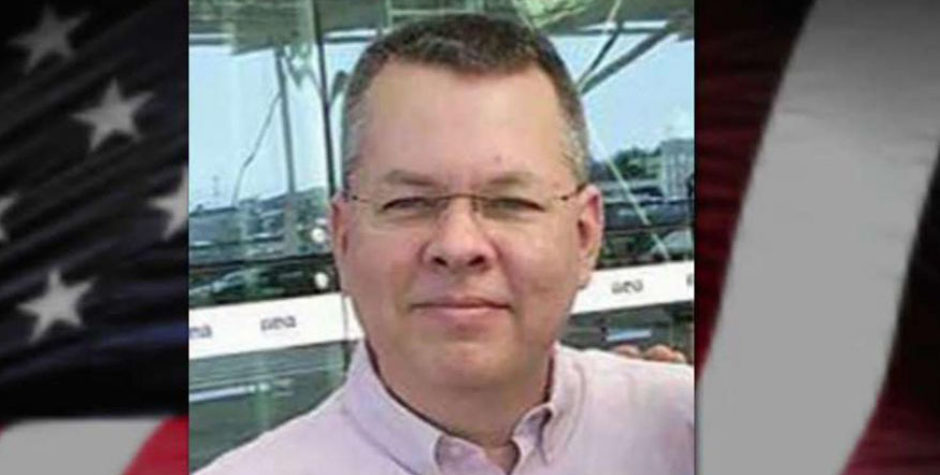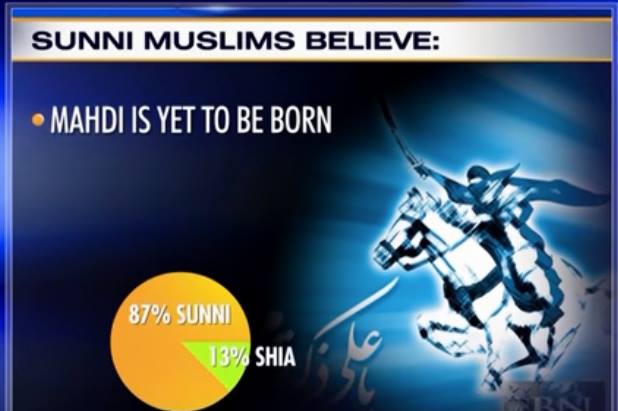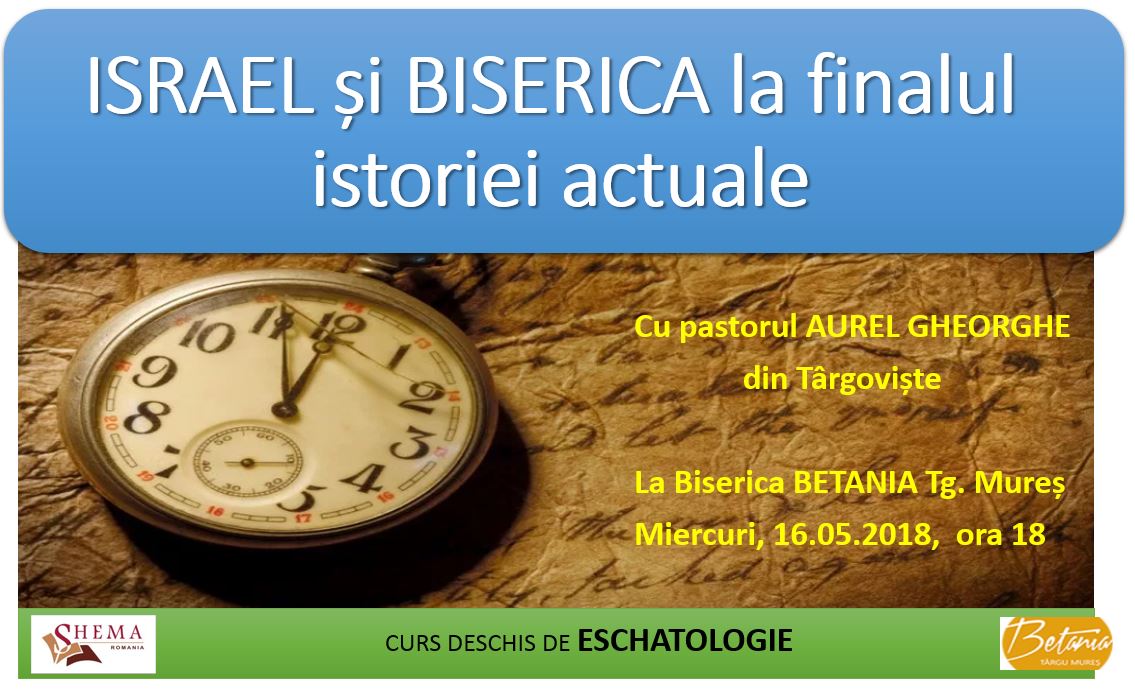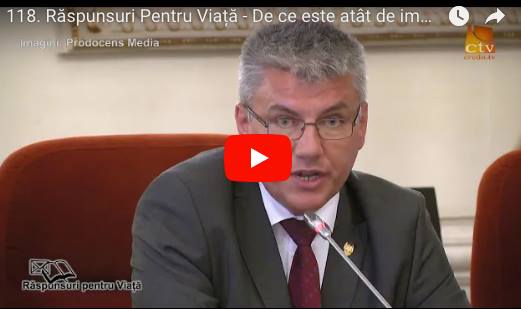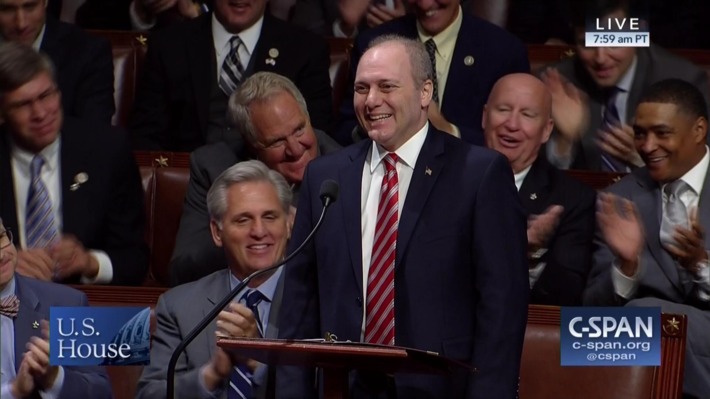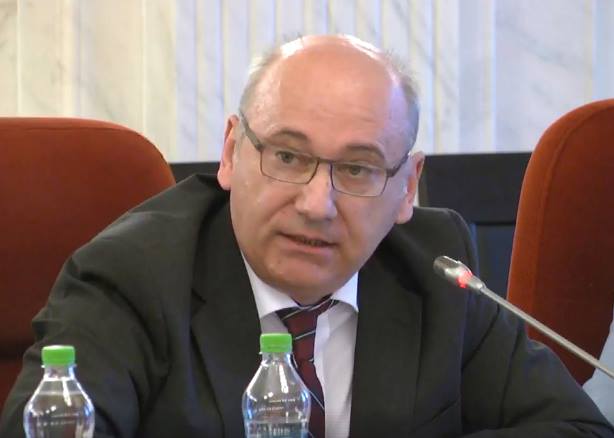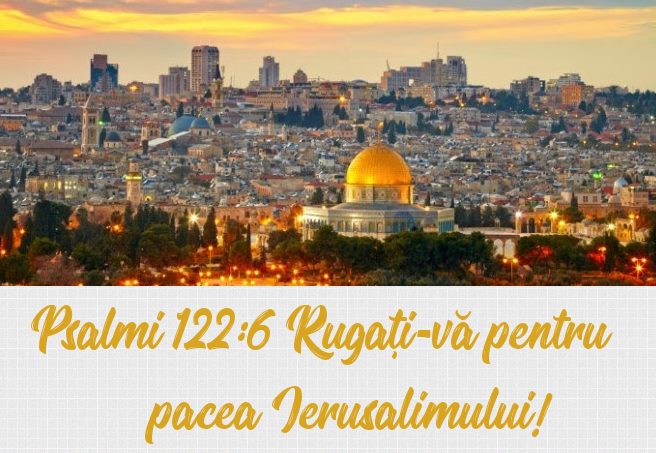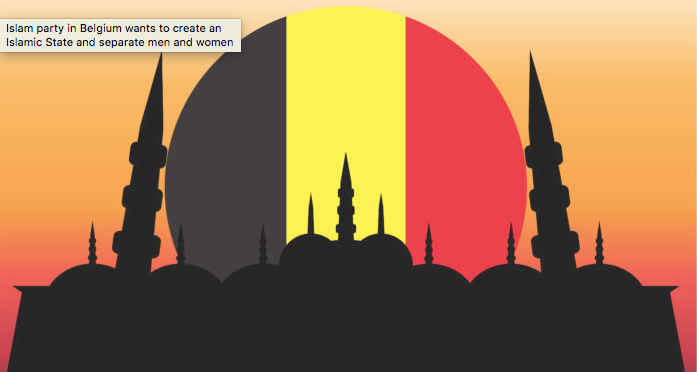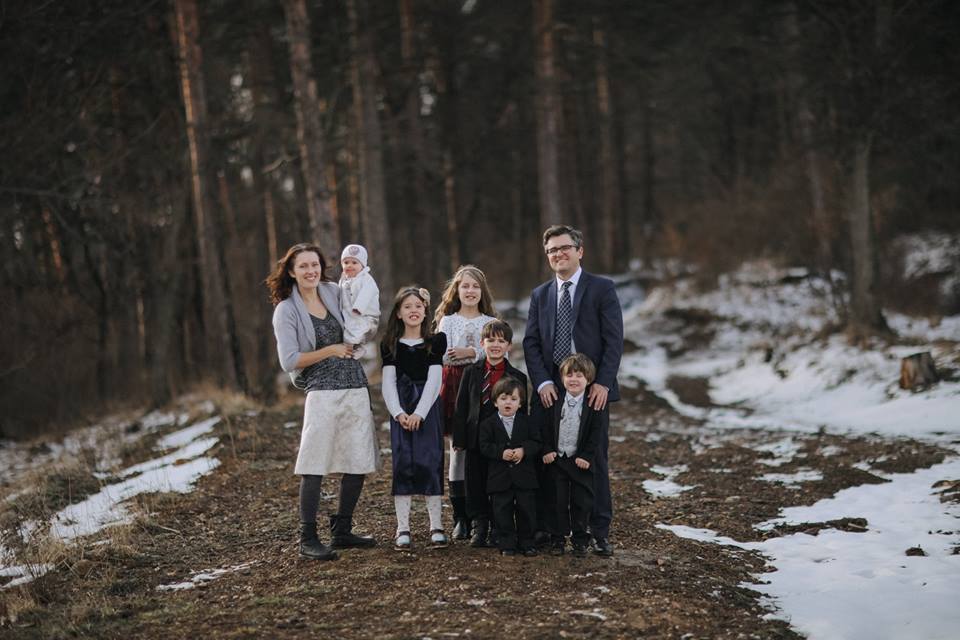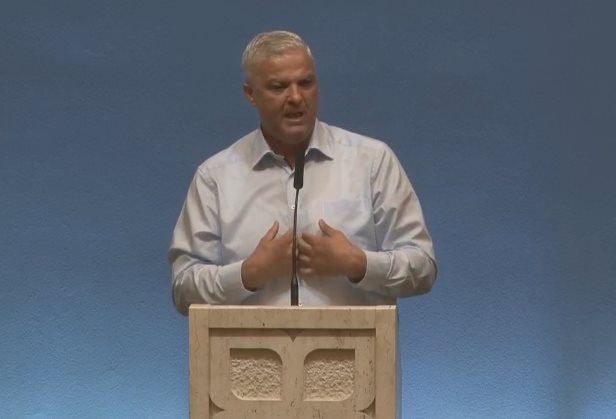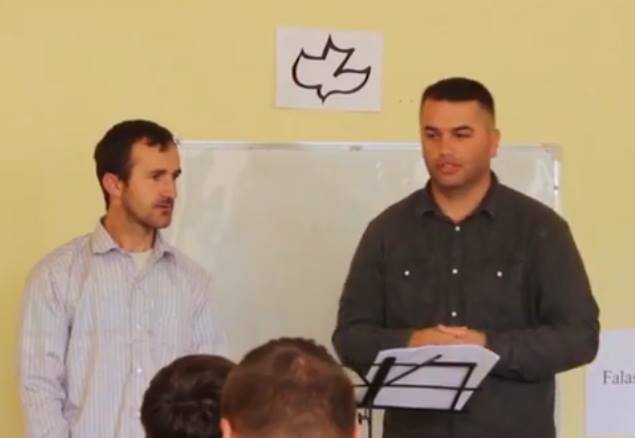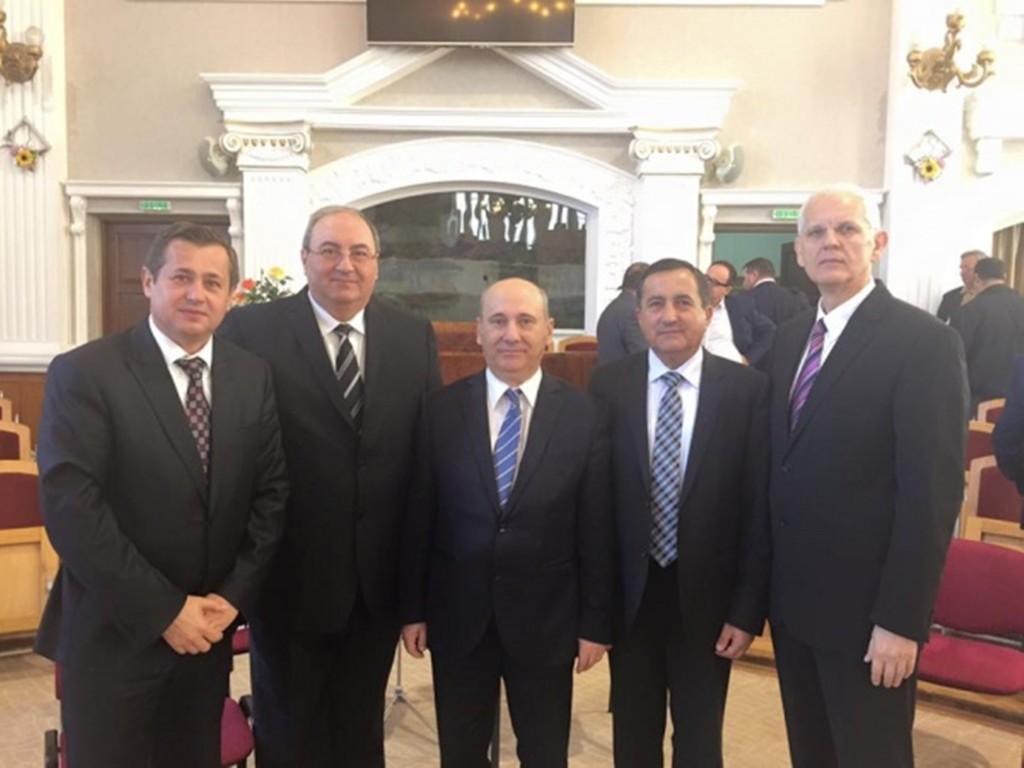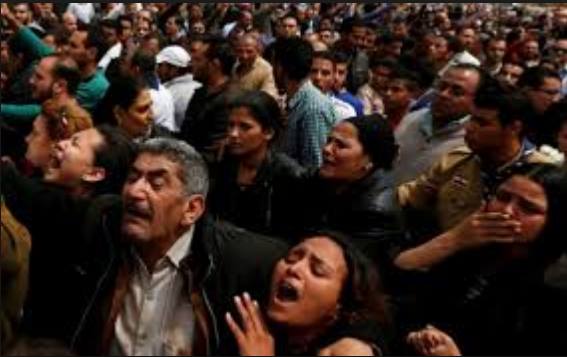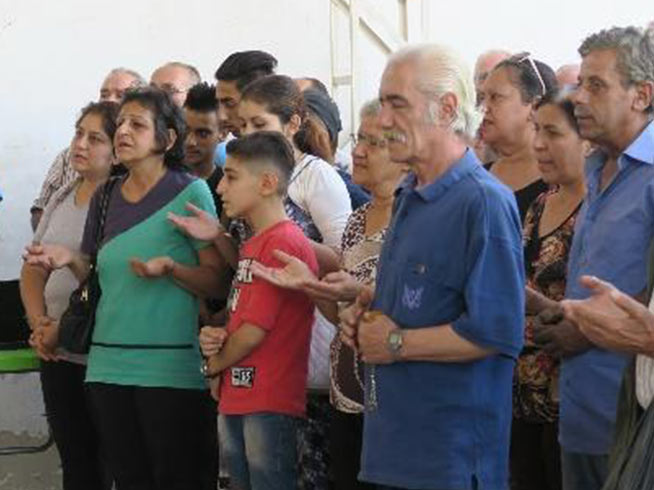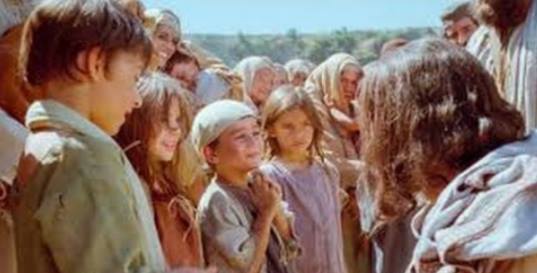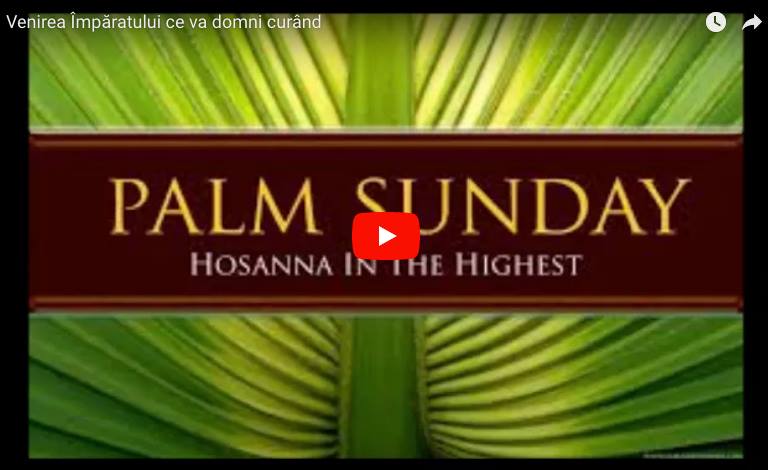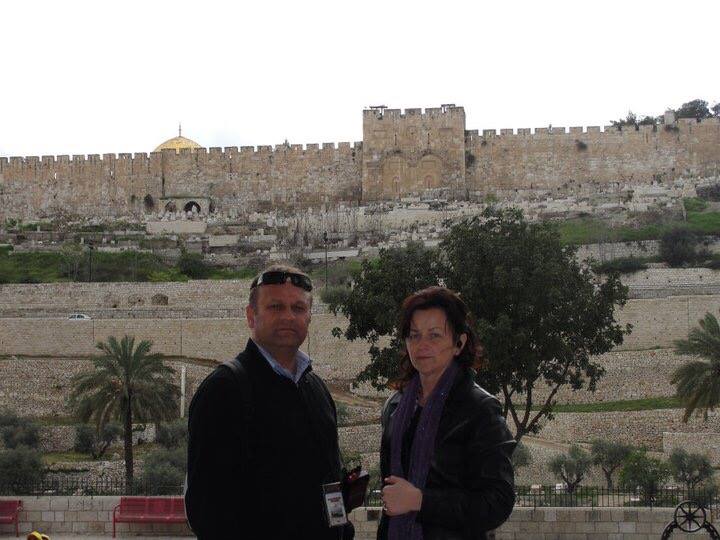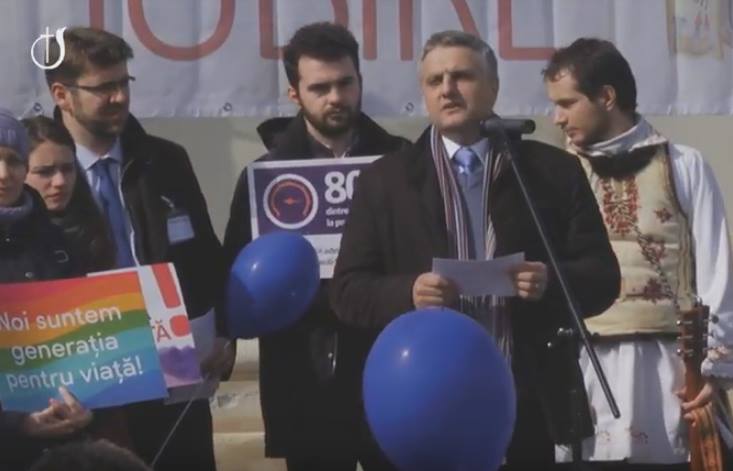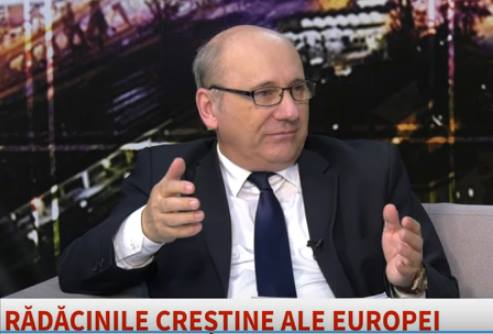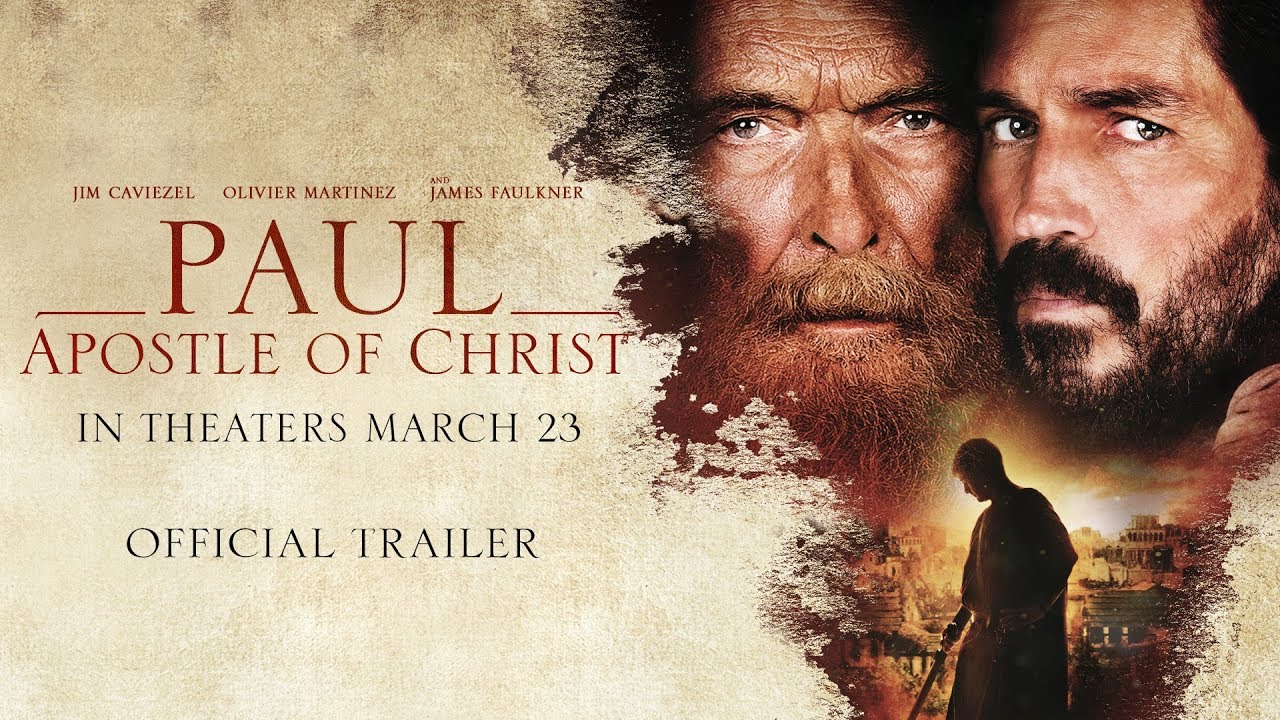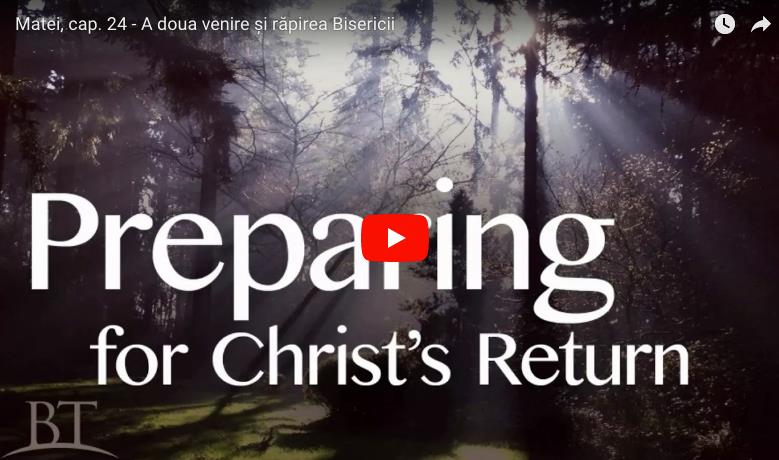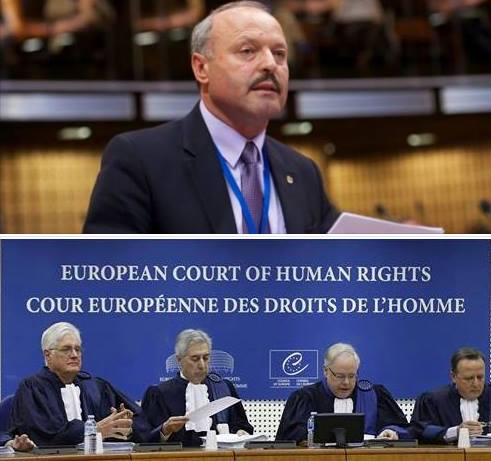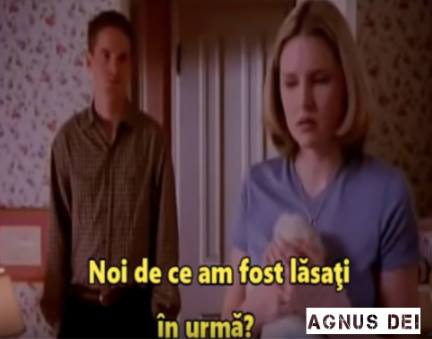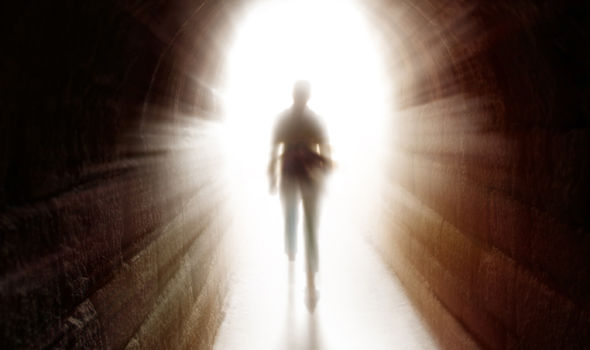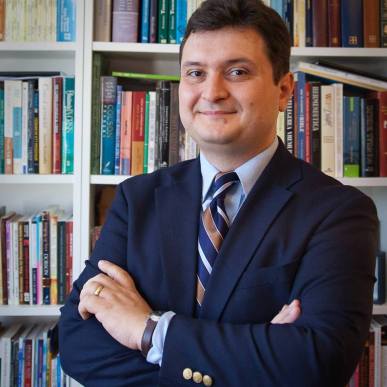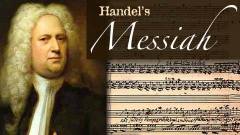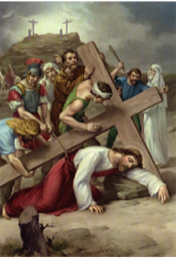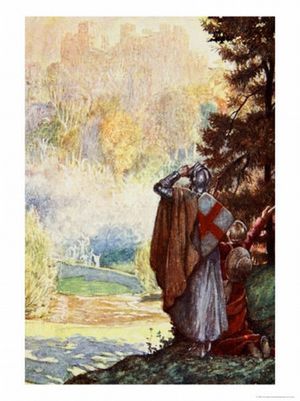In this short tract, J C Ryle explains the four points that will keep christians from being deceived by strange doctrines, as in Jesus’s warning to beware of the leaven of the Pharisees and Sadducees:
I desire to impress these four points upon you:
- clear views of the sinfulness of human nature;
- clear views of the inspiration of Scripture;
- clear views of the Atonement and Priestly office of our Lord and Saviour Jesus Christ;
- and clear views of the work of the Holy Ghost.
I believe that strange doctrines about the church, the ministry, and the sacraments,—about the love of God, the death of Christ, and the eternity of punishment,—will find no foothold in the heart which is sound on these four points. I believe that they are four great safeguards against the leaven of the Pharisees. and of the Sadducees by way of practical application. My desire is to make the whole subject useful to those into whose hands these pages may fall, and to supply an answer to the questions which may possibly arise in some hearts,—What are we to do? What advice have you got to offer for the times?
and, lest you think you are immune from the leaven of the Pharisees and Sadducees, Ryle, rightly warns that everyone could deviate and find themselves falling into the temptation to follow false doctrine, and, thus, falling away from the faith:
Finally, beware of supposing that you at any rate are not in danger. “Your views are sound: your feet stand firm: others may fall away, but you are safe!” Hundreds have thought the same, and come to a bad end. In their self-confidence they tampered with little temptations; and little forms of false doctrine ; in their self-conceit they went near the brink of danger: and now they seem lost for ever. They appear given over to a strong delusion, so as to believe a lie.
BEWARE!
by Rev. J. C. Ryle
“Then Jesus said unto them, Take heed, and beware of the leaven of the
Pharisees and of the Sadducees.”
—MATTHEW XVI. 6.
READER,
The title of the tract now in your hands has been chosen with special reference to its subject. It is a tract of warning against one of the greatest dangers of these last days. It is not a warning about things that I fear your doing, but about things that I fear your believing; it is not a warning against vice and immorality, but against false doctrine in religion: and it is a warning founded on the express words of our Lord Jesus Christ Himself. If the Chief Bishop of the Church has thought it good to give men warnings, it cannot be wrong in His ministers to do the same.
Every word spoken by the Lord Jesus is precious. It is the voice of the chief Shepherd. It is the Great Head of the Church speaking to all its members,—the King of kings speaking to His subjects,—the Master of the house speaking to His servants,—the Captain of our salvation speaking to His soldiers. Above all, it is the voice of Him who said, “I have not spoken of Myself: but the Father which sent Me, He gave Me a commandment, what I should say, and what I should speak” (John xii. 49). The heart of every believer in the Lord Jesus ought to burn within him when he hears his Master’s words: he ought to say, This is “the voice of my beloved” (Cant. ii. 8).
And every kind of word spoken by the Lord Jesus is of the greatest value. Precious as gold are all His words of doctrine and precept; precious are all His parables and prophecies; precious are all His words of comfort and of consolation; precious, not least, are all His words of caution and of warning. You and I are not merely to hear Him when He says, “Come unto Me, all ye that labour, and are heavy laden;” we are to hear Him also when He says, “Take heed and beware.”
Reader, I am going to ask your attention to one of the most solemn and emphatic warnings which the Lord Jesus ever delivered. You will find it in the text which stands at the head of this tract: “Take heed and beware of the leaven of the Pharisees and of the Sadducees.” I wish to erect a beacon for all who desire to be saved, and to preserve some souls, if possible, from making shipwreck. The times call loudly for such beacons: the spiritual shipwrecks of the last few years have been deplorably numerous. The watchmen of the Church ought to speak out plainly now, or for ever hold their peace.
In considering the words which form the subject of
this tract, there are four points which I desire to enforce on your notice.
- I. First of all, I will ask you to observe the persons to whom this warning was addressed.
- II. Secondly, the dangers against which we are here warned.
- III Thirdly, the peculiar name under which those dangers are described.
- IV. Fourthly, some safeguards and antidotes against the dangers of which our Lord Jesus Christ warns us.
I offer up my prayer to God that He with whom alone is all power,—without whom ministers preach, and write, and speak in vain,—may send down the Holy Ghost upon all who read this tract. I pray that every reader may lay it down more thoroughly acquainted with the dangers by which we are surrounded, and the best safeguards against those dangers,—more careful over his own heart, and more thankful for the truth as it is in Jesus.
I. First of all, I ask you to observe who they were to whom the warning of the text was addressed.
You will observe that our Lord Jesus Christ was not speaking to men who were worldly, ungodly, and unsanctified, but to His own disciples, companions, and friends: He addressed men who, with the exception of the apostate Judas Iscariot, were right-hearted in the sight of God; He spoke to the twelve apostles, the first founders of the Church of Christ, and the first ministers of the Word of salvation: and yet even to them he addressed the solemn caution of our text, “Take heed and beware.” There is deep instruction here for all who profess to love the Lord Jesus Christ in sincerity. It tells us loudly that the most decided servants of Christ are not beyond the need of warnings, and ought to be always on their guard. It shows us plainly that the holiest of believers ought to walk humbly with his God, and to watch and pray, lest he fall into temptation, and be overtaken in a fault. None is so holy, but that he may fall,—not finally, not hopelessly, but to his own they are yet in the body, and yet in the world. They are ever near temptation: they are ever liable to err, both in doctrine and in practice. Their hearts, though renewed, are very feeble; their understanding, though enlightened, is still very dim: they have need to live like those who dwell in an enemy’s land, and every day to put on the armour of God. The devil is very busy: he never slumbers or sleeps. Let us remember the falls of Noah, and Abraham, and Lot, and Moses, and David, and Peter; and remembering them, be humble, and take heed lest we fall.
Reader, I know not into whose hands this tract may fall; but as a minister myself, I may be allowed to say that none need warnings so much as the ministers of Christ’s Gospel. Our office and our ordination are no security against errors and mistakes. It is, alas, too true, that the greatest heresies have crept into the Church of Christ by means of ordained men. Neither Episcopal ordination, nor Presbyterian ordination, nor any other ordination, confers any immunity from error and false doctrine. Our very familiarity with the Gospel often begets in us a hardened state of mind: we are apt to read the Scriptures, and preach the Word, and conduct public worship, and carry on the service of God, in a dry, hard, formal, callous spirit; our very familiarity with sacred things, except we watch our hearts, is likely to lead us astray. “Nowhere,” says an old writer, “is a man’s soul in more danger than in a priest’s office.”
The history of the Church of Christ contains many melancholy proofs that the most distinguished ministers may for a time fall away. Who has not heard of Archbishop Cranmer recanting and going back from those opinions he had defended so stoutly, though, by God’s mercy, raised again to witness a glorious confession at last? Who has not heard of Bishop Jewell, signing documents that he most thoroughly disapproved, and of which signature he afterwards bitterly repented? Who does not know that many others might be named, who, at one time or another, have been overtaken by faults, have fallen into errors, and been led astray? And who does not know the mournful fact that many of them never came back to the truth, but died in hardness of heart, and held their errors to the last?
Reader, these things ought to make us all humble and cautious. They tell us to distrust our own hearts, and to pray to be kept from falling. In these days, when we are specially called upon to cleave firmly to the doctrines of the Protestant Reformation, let us take heed that our zeal for Protestantism does not puff us up, and make us proud. Let us never say in our self-conceit, “I shall never fall into Popery or Neologianism: those views will never suit me.” Let us remember that many have begun well and run well for a season, and yet afterwards turned aside out of the right way; let us take heed that we are spiritual men as well as Protestants, and real friends of Christ as well as enemies of anti-Christ; let us pray that we may be kept from error; let us never forget that the twelve apostles themselves were the men to whom the Great Head of the Church addressed these words: “Take heed and beware.”
II. I now propose, in the second place, to explain what were those dangers against which our Lord warned the Apostles. “Take heed,” He says, “and beware of the leaven of the Pharisees and of the Sadducees.”
The danger against which He warns them is false doctrine. He says nothing about the sword of persecution, or the open breach of the ten commandments, or the love of money, or the love of pleasure: all these things no doubt were perils and snares to which the souls of the apostles were exposed; against these things, however, our Lord raises no warning voice here. His warning is confined to one single point: “The leaven of the Pharisees and of the Sadducees.” We are not left to conjecture what our Lord meant by that word “leaven.” The Holy Ghost, a few verses after the very text on which I am now dwelling, tells us plainly that by leaven was meant the “doctrine” of the Pharisees and of the Sadducees.
Reader, let us try to understand what we mean when we speak of the “doctrine of the Pharisees and of the Sadducees.” Without a clear understanding of this point the whole tract you are now reading will be useless.
The doctrine of the Pharisees may be summed up in three words,— they were formalists, tradition worshippers, and self-righteous. They attached such weight to the traditions of men that they practically regarded them as of more importance than the inspired writings of the Old Testament; they valued themselves upon excessive strictness in their attention to all the ceremonial requirements of the Mosaic law; they thought much of being descended from Abraham,—they said in their hearts, “We have Abraham for our father;” they fancied because they had Abraham for their father that they were not in peril of hell like other men, and that their descent from him was a kind of title to heaven; they attached great value to washings and ceremonial purifyings of the body, and believed that the very touching of the dead body of a fly or gnat would defile them; they made a great ado about the outward parts of religion, and such things as could be seen of men; they made broad their phylacteries, and enlarged the fringes of their garments; they prided themselves on paying great honour to dead saints, and garnishing the sepulchres of the righteous. They were very zealous to make proselytes. They thought much of having power, rank, and pre-eminence, and of being called by men, “Rabbi, Rabbi.” These things, and many such-like things, the Pharisees did.
All this time, remember, they did not formally deny any part of the Old Testament Scripture; but they brought in, over and above it, so much of human invention, that they virtually put Scripture aside, and buried it under their own traditions: and of this sort of religion, our Lord says to the apostles, “Take heed and beware.”
The doctrine of the Sadducees, on the other hand, may be summed up in three words,—free-thinking, scepticism, and rationalism. Their creed was one far less popular than that of the Pharisees, and, therefore, we find them less often mentioned in the New Testament Scriptures. So far as we can judge from the New Testament, they appear to have held the doctrine of degrees of inspiration; at all events they attached exceeding value to the Pentateuch above the other parts of the Old Testament, if indeed they did not altogether ignore the latter; they believed that there was no resurrection, no angel, and no spirit; they tried to laugh men out of their belief in these things, by supposing hard cases, and bringing forward difficult questions. We have an instance of their mode of argument in the case which they propounded to our Lord of the woman who had had seven husbands, when they asked “In the resurrection whose wife shall she be of the seven?” And in this way they probably hoped, by rendering religion absurd, and its chief doctrines ridiculous, to make men altogether give up the faith they had received from the Scriptures.
All this time, remember, we may not say that the Sadducees were downright infidels: this they were not. We may not say they denied revelation altogether: this they did not do. They observed the law of Moses. Many of them were found among the priests in the times described in the Acts of the Apostles. But the practical effect of their teaching was to shake men’s faith in any revelation, and to throw a cloud of doubt over men’s minds, which was only one degree better than infidelity. And of all such kind of doctrine,—free-thinking, scepticism, rationalism, our Lord says, “Take heed and beware.”
Now the question arises, Why did our Lord Jesus Christ deliver this warning? He knew, no doubt, that within forty years the schools of the Pharisees and the Sadducees would be completely overthrown. He that knew all things from the beginning, knew perfectly well that in forty years Jerusalem, with its magnificent temple, would be destroyed, and the Jews scattered over the face of the earth. Why then do we find Him giving this warning about the leaven of the Pharisees and of the Sadducees?
Reader, I believe that our Lord delivered this solemn warning for the perpetual benefit of that Church which He came on earth to found. He spoke with a prophetic knowledge. He knew well the diseases to which human nature is always liable; He foresaw that the two great plagues of His Church upon earth would always be the doctrine of the Pharisees and the doctrine of the Sadducees; He knew that these would be the upper and nether mill-stones, between which His truth would be perpetually crushed and bruised until He came the second time; He knew that there always would be Pharisees in spirit, and Sadducees in spirit, among professing Christians; He knew that their succession would never fail, and their generation never become extinct,—that though the names of Pharisees and Sadducees were no more, yet their principles would always exist. He knew that during the time that the Church lasts, until His return, there would always be some that would add to the Word, and some that would subtract from it,—some that would stifle it, by adding to it other things, and some that would bleed it to death, by subtracting from its principal truths. And this is the reason why we find Him delivering this solemn warning: “Take heed and beware of the leaven of the Pharisees and of the Sadducees.”
And now comes the question, Had not our Lord Jesus Christ good reason to give this warning? I appeal to all who know anything of Church history, Was there not indeed a cause? I appeal to all who remember what took place soon after the apostles were dead. Do we not read that in the Church of Christ there rose up two distinct parties; one ever inclined to err, like the Arians, in holding less than the truth,—the other ever inclined to err, like the relic worshippers and saint worshippers, in holding more than the truth as it is in Jesus? Do we not see the same thing coming out in after times, in the form of Romanism on the one side and Socinianism on the other? Do we not read in the history of our own Church of two great parties, the nonjurors on the one side, and the latitudinarians on the other? These are ancient things. Time and space make it impossible for me to enter more fully into them. They are things well known to all who are familiar with records of past days. There always have been these two great parties,—the party representing the principles of the Pharisee, and the party representing the principles of the Sadducee. And therefore our Lord had good cause to say of these two great principles, “Take heed and beware.”
But, reader, I desire to bring the subject near to you at the present moment. I ask you to consider whether warnings like this are not especially needed in these times in which our lot is cast. We have, undoubtedly, much to be thankful for in England. We have made great advances in arts and sciences: we have much of the form and show of morality and religion. But, I ask anybody who can see beyond his own door, or his own fireside, whether we do not live in the midst of dangers from false doctrine?
We have amongst us, on the one side, a school of men who, wittingly or unwittingly, are paving the way into the Church of Rome; a school that professes to draw its principles from primitive tradition, the writings of the Fathers, and the voice of the Church; a school that talks and writes so much about the Church, the ministry, and the sacraments, that it makes them, like Aaron’s rod, swallow up everything else in Christianity; a school that attaches vast importance to the outward form and ceremonial of religion,—to gestures, postures, bowings, crosses, piscinas, sedilia, credence-tables, rood screens, albs, tunicles, chasubles, altar cloths, and many other like things, about which not a word is to be found in the Holy Scriptures. When we examine the proceedings of that school there can be but one conclusion concerning them. I believe, whatever be the meaning and intention of its teachers, that upon them has fallen the mantle of the Pharisees.
We have, on the other hand, a school of men who, wittingly or unwittingly, appear to pave the way to Socinianism; a school which holds strange views about the plenary inspiration of Holy Scripture,—strange views about the doctrine of sacrifice, and the atonement of our Lord and Saviour Jesus Christ,—strange views about the eternity of punishment, and God’s love to man; a school strong in negatives, but very weak in positives,—skilful in raising doubts, but impotent in laying them,—clever in unsettling and unscrewing men’s faith, but powerless to offer any firm rest for the sole of our foot. And whether the leaders of this school mean it or not, I believe that on them has fallen the mantle of the Sadducees.
These things sound harsh. It saves a vast deal of trouble to shut our eyes, and say, “I see no danger,” and because it is not seen, therefore not to believe it. It is easy to stop our ears, and say, “I hear nothing,” and because we hear nothing, therefore to feel no alarm. But we know well who they are that rejoice over the state of things we have to deplore in some quarters of our own Church. We know what the Roman Catholic thinks: we know what the Socinian thinks. The Roman Catholic rejoices over the rise of the Tractarian party: the Socinian rejoices over the rise of men who teach such views as those lately set forth about the atonement and inspiration. They would not rejoice as they do if they did not see their work being done and their cause being helped forward. The danger, I believe, is far greater than we are apt to suppose: the books that are read in many quarters are most mischievous; the tone of thought on religious subjects, among many classes, and especially among the higher ranks, is deeply unsatisfactory. The plague is abroad. If we love life, we ought to search our own hearts, and try our own faith, and make sure that we stand on the right foundation. Above all, we ought to take heed that we ourselves do not imbibe the poison of false doctrine, and go back from our first love.
I feel deeply the painfulness of speaking out on these subjects. I know well that plain speaking about false doctrine is very unpopular, and that the speaker must be content to find himself thought very uncharitable, very troublesome, and very narrow-minded. Thousands of people can never distinguish differences in religion: to them a clergyman is a clergyman, and a sermon is a sermon, and as to any difference between one minister and another, or one doctrine and another, they are utterly unable to understand it. I cannot expect such people to approve of any warning against false doctrine. I must make up my mind to meet with their disapprobation, and must bear it as I best can.
But I will ask any honest-minded, unprejudiced Bible reader to turn to the New Testament and see what he will find there. He will find many plain warnings against false doctrine: “Beware of false prophets,”—”Beware lest any man spoil you through philosophy and vain deceit,”—”Be not carried about with divers and strange doctrines,”—”Believe not every spirit, but try the spirits whether they are of God.” (Matt. vii. 15; Col. ii. 8; Heb. xiii. 9; 1 John iv; 1). He will find a large part of several inspired epistles taken up with elaborate explanations of true doctrine and warnings against false teaching. I ask whether it is possible for a minister who takes the Bible for his rule of faith to avoid giving warnings against doctrinal error?
Finally, I ask any one to mark what is going on in England at this very day. I ask whether it is not true that hundreds have left the Established Church and joined the Church of Rome within the last thirty years? I ask whether it is not true that hundreds remain within our pale, who in heart are little better than Romanists, and who ought, if they were consistent, to walk in the steps of Newman and Manning, and go to their own place? I ask again whether it is not true that scores of young men, both at Oxford and Cambridge, are spoiled and ruined by the withering influence of scepticism, and have lost all positive principles in religion? Sneers at religious newspapers, loud declarations of dislike to “parties,” high-sounding, vague phrases about “deep thinking, broad views, new light, and the effete weakness of certain schools of theology,” make up the whole Christianity of many of the rising generation. And yet, in the face of these notorious facts, men cry out, “Hold your peace about false doctrine. Let false doctrine alone!” I cannot hold my peace. Faith in the Word of God, love to the souls of men, the vows I took when I was ordained, alike call on me to bear witness against the errors of the day. And I believe that the saying of our Lord is eminently a truth for the times: “Beware of the leaven of the Pharisees and of the Sadducees.”
III. The third thing to which I wish to call your attention is the peculiar name by which our Lord Jesus Christ speaks of the doctrines of the Pharisees and of the Sadducees.
Reader, the words which our Lord used were always the wisest and the best that could be used. He might have said, “Take heed and beware of the doctrine, or of the teaching, or of the opinions of the Pharisees and of the Sadducees; “but He does not say so: He uses a word of a peculiar nature. He says, “Take heed and beware of the leaven of the Pharisees and of the Sadducees.”
Now we all know what is the true meaning of the word “leaven.” It is what we commonly call yeast,—the yeast which is added to the lump of dough in making a loaf of bread. This yeast or leaven bears but a small proportion to the lump into which it is thrown; just so, our Lord would have us know, the first beginning of false doctrine is but small compared to the body of Christianity. It works quietly and noiselessly; just so, our Lord would have us know, false doctrine works secretly in the heart in which it is once planted.. It insensibly changes the character of the whole mass with which it is mingled; just so, our Lord would have us know, the doctrines of the Pharisees and Sadducees turn everything upside down, when once admitted into a church or into a man’s heart. Let us mark these points: they throw light on many things that we see in the present day. It is of vast importance to receive the lessons of wisdom that this word “leaven” contains in itself.
False doctrine does not meet men face to face, and proclaim that it is false; it does not blow a trumpet before it, and endeavour openly to turn us away from the truth as it is in Jesus; it does not come before men in broad day, and summon them to surrender. It approaches us secretly, quietly, insidiously, plausibly, and in such a way as to disarm man’s suspicion, and throw him off his guard. It is the wolf in sheep’s clothing, and Satan in the garb of an angel of light, who have always proved the most dangerous foes of the Church of Christ.
I believe the most powerful champion of the Pharisees is not the man who bids you openly and honestly come out and join the Church of Rome: it is the man who says that he agrees on all points with you in doctrine. He would not take anything away from those evangelical views that you hold; he would not have you make any change at all: all he asks you to do is to add a little more to your belief, in order to make your Christianity perfect. “Believe me,” he says, “we do not want you to give up anything. We only want you to hold a few more clear views about the church and the sacraments. We want you to add to your present opinions a little more about the office of the ministry, and a little more about the Prayer-book, and a little more about the necessity of order and of discipline. We only want you to add a little more of these things to your system of religion, and you will be quite right.” But when men speak to you in this way, then is the time to remember what our Lord said, and to “take heed and beware.” This is the leaven of the Pharisees, against which you are to stand upon your guard.
Why do I say this? I say it because there is no security against the doctrine of the Pharisees, unless we resist its principles in their beginnings. Beginning with a “little more about the church,” you may one day place the church in the room of Christ. Beginning with a “little more about the ministry,” you may one day regard the minister as the mediator between God and man. Beginning with a “little more about the sacraments,” you may one day altogether give up the doctrine of justification by faith without the deeds of the law. Beginning with a “little more reverence for the Prayer-book,” you may one day place it above the holy Word of God Himself. Beginning with a “little more honour to bishops,” you may at last refuse salvation to every one who does not belong to an Episcopal Church. I only tell you an old story: I only mark out roads that have been trodden by hundreds of members of the Church of England in the last few years. They began by carping at the Reformers, and have ended by swallowing the decrees of the Council of Trent; they began by crying up Laud and the non-jurors, and have ended by going far beyond them, and formally joining the Church of Rome. I believe that when we hear men asking us to “add a little more” to our good old plain Evangelical views, we should stand upon our guard. We should remember our Lord’s caution: “Of the leaven of the Pharisees take heed and beware.”
I believe the most dangerous champion of the Sadducee school is not the man who tells you openly that he wants you to lay aside any part of the truth, and to become a free-thinker and a sceptic. It is the man who begins with quietly insinuating doubts as to the position that we ought to take up about religion,—doubts whether we ought to be so positive in saying “this is truth, and that falsehood,”—doubts whether we ought to think men wrong who differ from us on religious opinions, since they may after all be as much right as we are. It is the man who tells us we ought not to condemn anybody’s views, lest we err on the side of want of charity. It is the man who always begins talking in a vague way about God being a God of love, and hints that we ought to believe perhaps that all men, whatever doctrine they profess, will be saved. It is the man who is ever reminding us that we ought to take care how we think lightly of men of powerful minds, and great intellects (though they are deists and sceptics), who do not think as we do, and that, after all, great minds are all, more or less, taught of God. It is the man who is ever harping on the difficulties of inspiration, and raising questions whether all men may not be found saved in the end, and whether all may not be right in the sight of God. It is the man who crowns this kind of talk by a few calm sneers against what he is pleased to call “old-fashioned views,” and “narrow-minded theology,” and “bigotry,” and the “want of liberality and charity,” in the present day. But when men begin to speak to us in this kind of way, then is the time to stand upon our guard. Then is the time to remember the words of our Lord Jesus Christ, and “to take heed and beware.”
Once more, why do I say this? I say it because there is no security against Sadduceeism, any more than against Phariseeism, unless we resist its principles in the bud. Beginning with a little vague talk about “charity,” you may end in the doctrine of universal salvation, fill heaven with a mixed multitude of wicked as well as good, and deny the existence of hell. Beginning with a few high-sounding phrases about intellect and the inner light in man, you may end with denying the work of the Holy Ghost, and maintaining that Homer and Shakespeare were as truly inspired as St. Paul, and practically casting aside the Bible. Beginning with some dreamy, misty idea about all religions containing more or less truth, you may end with utterly denying the necessity of missions, and maintaining that the best plan is to leave everybody alone. Beginning with dislike to “Evangelical religion,” as old-fashioned, narrow, and exclusive, you may end by rejecting every leading doctrine of Christianity,—the atonement, the need of grace, and the divinity of Christ. Again I repeat that I only tell an old story: I only give a sketch of a path which scores have trodden in the last few years. They were once satisfied with such divinity as that of Newton, Scott, Cecil, and Romaine; they are now fancying they have found a more excellent way in the principles which have been propounded by the theologians of the Broad school! I believe there is no safety for a man’s soul unless he remembers the lesson involved in those solemn words, “Beware of the leaven of the Sadducees.”
Reader, beware of the insidiousness of false doctrine. Like the fruit of which Eve and Adam ate, it looks at first sight pleasant and good, and a thing to be desired. Poison is not written upon it; like counterfeit coin it is not stamped “bad”: it passes current from the very likeness it bears to the truth.
Beware of the very small beginnings of false doctrine. Every heresy began at one time with some little departure from the truth. There is only a little seed of error needed to create a great tree: it is the little stones that make up the mighty building; it was the little timbers that made the great ark that carried Noah and his family over a deluged world; it is the little leaven that leavens the whole lump; it is the little flaw in one link of the chain cable that wrecks the gallant ship, and drowns the crew; it is the omission or addition of one little item in the doctor’s prescription that spoils the whole medicine, and turns it into poison. We do not tolerate quietly a little dishonesty, or a little cheating, or a little lying: just so, let us never allow a little false doctrine to ruin us, by thinking it is but a “little one,” and can do no harm. The Galatians seemed to be doing nothing very dangerous when they “observed days and months, and times and years; yet St. Paul says, “I am afraid of you” (Gal. iv. 10, 11).
Finally, beware of supposing that you at any rate are not in danger. “Your views are sound: your feet stand firm: others may fall away, but you are safe!” Hundreds have thought the same, and come to a bad end. In their self-confidence they tampered with little temptations; and little forms of false doctrine ; in their self-conceit they went near the brink of danger: and now they seem lost for ever. They appear given over to a strong delusion, so as to believe a lie. Some of them have exchanged the Prayer-book for the Breviary, and are praying to the Virgin Mary, and bowing down to images: others of them are casting overboard one doctrine after another, and bid fair to strip themselves of every sort of religion but a few scraps of Deism. Very striking is the vision in Pilgrim’s Progress, which describes the hill Error as “very steep on the farthest side;” and “when Christian and Hopeful looked down they saw at the bottom several men dashed all to pieces by a fall they had from the top.” Never, never let us forget the caution to beware of “leaven”; and if we think we stand let us “take heed lest we fall.”
IV. I propose, in the fourth and last place, to suggest some safeguards and antidotes against the dangers of the present day,—the leaven of the Pharisees and the leaven of the Sadducees.
I feel that we all need more and more the presence of Holy Ghost in our hearts, to guide, to teach,
and keep us sound in the faith. We all need to watch more and to pray to be held up, and preserved from falling away. But still, there are certain great truths in a day like this, we are specially bound to keep in mind. There are times when some common epidemic invades a land, when medicines, at all times valuable, become of peculiar value ; there are places where a peculiar malaria prevails, in which remedies, in every place valuable, are more than ever valuable in consequence of it. So I believe there are times and seasons in the Church of Christ when we are bound to tighten our hold upon certain great leading truths, to grasp them in our hands, to press them to our hearts, and not to let them go. Such doctrines I desire to set before you in a few words, as the great antidotes to the leaven of the Pharisees and of the Sadducees. When Saul and Jonathan were slain by the archers, David ordered the children of Israel to be taught the use of the bow.
For one thing, if you would be kept sound in the faith, I charge you to take heed to your doctrine about the total corruption of human nature. Bear in mind that the corruption of human nature is no slight thing. It is no partial, skin-deep disease: it is a radical and universal corruption of man’s will, intellect, affections, and conscience. We are not merely poor and pitiable sinners in God’s sight: we are guilty sinners; we are blameworthy sinners; we deserve justly God’s wrath and God’s condemnation. I believe there are very few errors and false doctrines of which the beginning may not be traced up to unsound views about the corruption of human nature. Wrong views of a disease will always bring with them wrong views of the remedy: wrong views of the corruption of human nature will always carry with them wrong views of the grand antidote and cure of that corruption. Reader, remember this point, and it will do you good.
For another thing, I charge you to take heed to your doctrine about the inspiration and authority of the Holy Scriptures. I would have you boldly maintain, in the face of all gainsayers, that the whole of the Bible is given by inspiration of the Holy Ghost,—that all is inspired completely, not one part more than another,—and that there is an entire gulf between the Word of God and any other book in the world. You need not be afraid of difficulties in the way of the doctrine of plenary inspiration. There may be many things about it far too high for you and me to comprehend: it is a miracle, and all miracles are necessarily mysterious. But if we are not to believe anything until we can entirely explain it, there are very few things indeed that we shall believe. You need not be afraid of all the assaults that criticism brings to bear upon the Bible. From the days of the apostles the Word of the Lord has been incessantly “tried,” and has never failed to come forth as gold, uninjured, and unsullied. You need not be afraid of the discoveries of science. Astronomers may sweep the heavens with telescopes, and geologists may dig down into the heart of the earth, and never shake the authority of the Bible: “The voice of God, and the work of God’s hands never will be found to contradict one another.” You need not be afraid of the researches of travellers. They will never discover anything that contradicts God’s Bible. I believe that if a Layard were to go over all the earth and dig up a hundred buried Ninevehs, there would not be found a single inscription which would contradict a single fact in the Word of God.
Furthermore, I would have you boldly maintain that this Word of God is the only rule of faith and of practice,—that whatsoever is not written in it cannot be required of any man as needful to salvation,—and that however plausibly new doctrines may be defended, if they be not in the Word of God they cannot be worth your attention. It matters nothing who says a thing, whether he be bishop, archdeacon, dean, or presbyter; it matters nothing that the thing is well said, eloquently, attractively, forcibly, and in such a way as to turn the laugh against you: you are not to believe it except it be proved to you by Holy Scripture.
Last, but not least, I would have you use the Bible as if you believed it were given by inspiration. Use it with reverence: read it with all the tenderness with which you would read the words of an absent father. Remember, you must not expect to find in a book inspired by the Spirit of God no mysteries: rather remember that in nature there are many things you cannot understand ; and that as it is in the book of nature, so it will always be in the book of Revelation. Draw near to the Word of God in that spirit of piety recommended by Lord Bacon many years ago. “Remember,” he says, speaking of the book of nature, “that man is not the master of that book, but the interpreter of that book.” And as you deal with the book of nature, so you must deal with the Book of God. Draw near to it, not to teach, but to learn,—not as if you were the master of it, but like a humble scholar, seeking to understand it. Reader, once more I say, remember this point, and it will do you good.
For another thing, I charge you to take heed to your doctrine respecting the atonement and priestly office of our Lord and Saviour Jesus Christ. I would have you boldly maintain that the death of our Lord upon the cross was no common death. It was not the death of one who only died like Cranmer, Ridley, and Latimer, as a martyr; it was not the death of one who only died to give us a mighty example of self-sacrifice and self-denial. The death of Christ was an offering up unto God of Christ’s own body and blood, to make satisfaction for man’s sin and transgression. It was a sacrifice and propitiation; a sacrifice typified in every offering of the Mosaic law, a sacrifice of the mightiest influence upon all mankind. Without the shedding of that blood there could not be,—there never was to be,—any remission of sin.
Furthermore, I would have you boldly maintain that this crucified Saviour ever sitteth at the right hand of God, to make intercession for all that come to God by Him; that He there represents and pleads for them that put their trust in Him; and that He has deputed His office of Priest and Mediator to no man, or set of men on the face of the earth. We need none beside. We need no Virgin Mary, no angels, no saint, no priest, no person ordained or unordained, to stand between as and God, but the one Mediator, Christ Jesus.
Furthermore, I would have you boldly maintain that peace of conscience is not to be bought by confession to a priest, and by receiving a man’s absolution from sin. It is to be had only by going to the great High Priest, Christ Jesus; by confession before Him, not before man; and by absolution from Him only, who alone can say, “Thy sins be forgiven thee: go in peace.”
Last, but not least, I would have you boldly maintain that peace with God, once obtained by faith in Christ, is to be kept up, not by mere outward ceremonial acts of worship,—not by receiving the sacrament of the Lord’s Supper every day,—but by the daily habit of looking to the Lord Jesus Christ by faith,—eating by faith His body, and drinking by faith His blood; that eating and drinking of which our Lord says that he who eats and drinks shall find His “body meat indeed, and His blood drink indeed.” Holy John Owen declared, long ago, that if there was any one point more than another that Satan wished to overthrow, it was the Priestly office of our Lord and Saviour Jesus Christ: Satan knew well, he said, that it was the “principal foundation of faith and consolation of the church.” Right views upon that office are of essential importance in the present day, if men would not fall into error. Reader, once more I say, remember this point, and it will do you good.
One more remedy I must mention. I charge you to take heed to your doctrine about the work of God the Holy Ghost. Settle it in your mind that His work is no uncertain, invisible operation upon the heart: that where He is, He is not hidden; that where He is, He is not unfelt; that where he is, He is not unobserved. You do not believe that the dew, when it falls, cannot be felt, or that where there is life in a man it cannot be seen and observed by his breath. So is it with the influence of the Holy Ghost. No man has any right to lay claim to it, except its fruits,—its experimental effects,—can be seen in his life. Where He is, there will ever be a new creation; where He is, there will ever be a new man; where He is, there will ever be new knowledge, new faith, new holiness, new fruits in the family, in the world, in the church. And where these new things are not to be seen we may well say, with confidence, there is no work of the Holy Ghost. These are times in which we all need to be upon our guard about the doctrine of the work of the Spirit. Madame Guyon said, long ago, that the time would perhaps come when men might have to be martyrs for the work of the Holy Ghost: that time seems not far distant. At any rate, if there is one truth in religion that seems to have more contempt showered upon it than another, it is the work of the Spirit. Reader, once more I say, remember this point, and it will do you good.
Reader, I desire to impress these four points upon you: clear views of the sinfulness of human nature; clear views of the inspiration of Scripture; clear views of the Atonement and Priestly office of our Lord and Saviour Jesus Christ; and clear views of the work of the Holy Ghost. I believe that strange doctrines about the church, the ministry, and the sacraments,—about the love of God, the death of Christ, and the eternity of punishment,—will find no foothold in the heart which is sound on these four points. I believe that they are four great safeguards against the leaven of the Pharisees. and of the Sadducees by way of practical application. My desire is to make the whole subject useful to those into whose hands these pages may fall, and to supply an answer to the questions which may possibly arise in some hearts,—What are we to do? What advice have you got to offer for the times?
1. In the first place, I will ask every reader of this tract to find out whether he has saving personal religion for his own soul. This is the principal thing after all. It will profit no man anything to belong to a sound visible church, if he does not himself belong to Christ: it will avail a man nothing to be intellectually sound in the faith, and to approve sound doctrine, if he is not himself sound at heart. Reader, is this the case with you? Can you say that your heart is right in the sight of God? Is it renewed by the Holy Ghost? Does Christ dwell in it by faith? Oh, rest not, rest not, till you can give a satisfactory answer to these questions! The man who dies unconverted, however sound his views, is as truly lost for ever as the worst Pharisee or Sadducee that ever lived.
2. In the next place, let me beseech every reader of this tract who desires to be sound in the faith, to study diligently the Bible. That blessed book is given to be a light to our feet, and a lantern to our path. No man who reads it reverently, prayerfully, humbly, and regularly, shall ever be allowed to miss the way to heaven. By it every sermon, and every religious book, and every ministry ought to be weighed and proved. Reader, would you know what is truth? Do you feel confused and puzzled by the war of words which you hear on every side about religion? Do you want to know what you ought to believe, and what you ought to be and do, in order to be saved? Take down your Bible, and cease from man. Read your Bible with earnest prayer for the teaching of the Holy Ghost; read it with honest determination to abide by its lessons. Do so steadily and perseveringly, and you shall see light: you shall be kept from the leaven of the Pharisees and Sadducees, and be guided to eternal life. The way to do a thing is to do it. Act upon this advice without delay.
3. In the next place, let me advise every reader of this tract who has reason to hope that he is sound in faith and heart, to take heed to the proportion of truths. I mean by that to impress the importance of giving each several truth of Christianity the same place and position in our hearts which is given to it in God’s Word. The first things must not be put second, and the second things must not be put first in our religion: the church must not be put above Christ; the sacraments must not be put above faith and the work of the Holy Ghost; ministers must not be exalted above the place assigned to them by Christ; means of grace must not be regarded as an end instead of a means. Reader, attention to this point is of great moment: the mistakes which arise from neglecting it are neither few nor small. Here lies the immense importance of studying the whole Word of God, omitting nothing, and avoiding partiality in reading one part more than another. Here again lies the value of having a clear system of Christianity in our minds. Well would it be for the Church of England if all its members read the thirty-nine Articles, and marked the beautiful order in which those Articles state the main truths which men ought to believe.
4. In the next place, let me entreat every true-hearted servant of Christ not to be deceived by the specious guise under which false doctrines often approach our souls in the present day. Beware of supposing that a teacher of religion is to be trusted, because, although he holds some unsound views, he yet “teaches a great deal of truth:” such a teacher is precisely the man to do you harm: poison is always most dangerous when it is given in small doses and mixed with wholesome food. Beware of being taken in by the apparent earnestness of many of the teachers and upholders of false doctrine: remember that zeal and sincerity and fervour are no proof whatever that a man is working for Christ, and ought to he believed. Peter no doubt was in earnest when he bade our Lord spare Himself, and not go to the cross; yet our Lord said to him, “Get thee behind me, Satan”: Saul no doubt was in earnest when he went to and fro persecuting Christians; yet he did it ignorantly, and his zeal was not according to knowledge: the founders of the Spanish Inquisition were no doubt in earnest, and in burning God’s saints alive thought they were doing God’s service; yet they were actually persecuting Christ’s members and walking in the steps of Cain.—It is an awful fact that, “Satan himself is transformed as an angel of light.” Of all the delusions prevalent in these latter days, there is no greater than the common notion that “if good a man is in earnest about his religion he must be a good man!”
Reader, beware of being carried away by this delusion: beware of being led astray by “earnest-minded men.” Earnestness is in itself an excellent thing; but it must be earnestness in behalf of Christ and His whole truth, or else it is worth nothing at all. The things that are highly esteemed among men are often abominable in the sight of God.
5. In the next place, let me counsel every true servant of Christ to examine his own heart frequently and carefully as to his state before God. This is a practice which is useful at all times: it is specially desirable at the present day. When the great plague of London was at its height people remarked the least symptoms that appeared on their bodies in a way that they never remarked them before: a spot here, or a spot there, that in time of health men thought nothing of, received close attention when the plague was decimating families, and striking down one after another So ought it to be with ourselves, in the times in which we live. We ought to watch our hearts with double watchfulness; we ought to give more time to meditation, self-examination, and reflection. It is a hurrying, bustling age: if we would be kept from falling, we must make time for being frequently alone with God.
6. Last of all, let me urge all true believers to contend earnestly for the faith once delivered to the saints. You and I have no cause to be ashamed of that faith. There is no system so life-giving, so calculated to awaken the sleeping, lead on the inquiring, and build up the saints, as that system which is called the Evangelical system of Christianity. It may be spoken against and mocked by some; but so it was in the days of the apostles. It may be weakly set forth and defended by many of its advocates; but, after all, its fruits and its results are its highest praise. No other system of religion can point to such fruits. Nowhere are so many souls converted to God as in those congregations where the Gospel of Jesus Christ is preached in all its fulness, without any admixture of the Pharisee or Sadducee doctrine. We are not called upon, beyond all doubt, to be nothing but controversialists; but we never ought to be ashamed to testify to the truth as it is in Jesus. We have the truth, and we need not be afraid to say so. The judgment-day will prove who is right, and to that day we may boldly appeal.
 Vechiul si Noul Testament. Dumnezeu a avut un reprezentant divin in toata lucrarea Sa. Suntem obisnuiti sau invatati ca Sfanta Treime lucreaza impreuna si ca noi credem in Trinitate. Cuvantul in sine nu exista in Sfanta Scriptura, aceasta este mai degraba o constructie teologica ca sa putem intelege rolul acestora in planul lui Dumnezeu inca de la facerea lumii. Apostolul Pavel descrie in epistola sa catre Romani, intr-un mod cat se poate de doctrinar – el fiind dealtfel un invatat al vremii in scrierile Vechiului Testament – lucrarea Duhului in vietile credinciosilor care dealtfel, si locuieste in ei… „Voi nu mai sunteti pamantesti, ci duhovnicesti, daca Duhul lui Dumnezeu locuieste in adevar in voi” Rom. 8:9
Vechiul si Noul Testament. Dumnezeu a avut un reprezentant divin in toata lucrarea Sa. Suntem obisnuiti sau invatati ca Sfanta Treime lucreaza impreuna si ca noi credem in Trinitate. Cuvantul in sine nu exista in Sfanta Scriptura, aceasta este mai degraba o constructie teologica ca sa putem intelege rolul acestora in planul lui Dumnezeu inca de la facerea lumii. Apostolul Pavel descrie in epistola sa catre Romani, intr-un mod cat se poate de doctrinar – el fiind dealtfel un invatat al vremii in scrierile Vechiului Testament – lucrarea Duhului in vietile credinciosilor care dealtfel, si locuieste in ei… „Voi nu mai sunteti pamantesti, ci duhovnicesti, daca Duhul lui Dumnezeu locuieste in adevar in voi” Rom. 8:9































 The second question is why Satan would lead Judas to betray Jesus. Doesn’t he know that the death and resurrection of Jesus would result in Satan’s final defeat (
The second question is why Satan would lead Judas to betray Jesus. Doesn’t he know that the death and resurrection of Jesus would result in Satan’s final defeat ( In
In 














